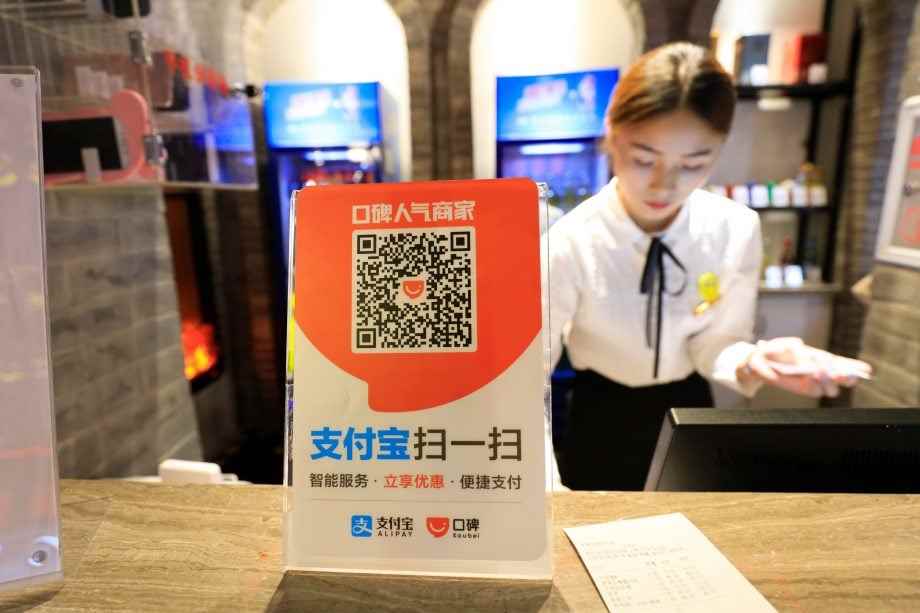There are currently 1.4 billion people in China who pay for their daily bread either with cash, by bank card or with their smartphone. About half of the Chinese use the latter as a common means of payment to pay for everything from a taxi to a visit to the market via QR codes.
In over 90 percent of the cases, the company behind this “mobile banking” offering is either Tencent or Ant Group. Their apps WeChat Pay and Alipay work in a similar way to PayPal: low-fee payments in seconds using a mobile device.
A third player is increasingly being added in China. This is none other than the government itself. Because together with the Chinese central bank (PBOC), they are not only rolling out an alternative payment app, but also a state-secured means of payment: the digital yuan, also known as e-yuan or e- Called CNY. Ultimately, this is cash in token form.
read too
Olympics 2022 with e-CNY
After almost eight years of research, the e-CNY was released to foreign users for the first time at the 2022 Winter Olympics. The athletes and their teams were able to exchange cash for e-CNY cash cards at specially constructed machines.
In order to be able to use this hardware wallet, you only have to register your private phone number. In order to be able to use the advantages of the software wallet, a corresponding app from the central bank must also be installed on the smartphone. If you have fulfilled both, you can take part in the digital-monetary revolution.
According to a spokesman for the PBOC, transactions worth around 265,000 euros are carried out every day. The PBOC cannot (or does not want to) reveal how large the proportion of domestic and international users is. This number could be exciting for many. Because the offer was not enthusiastically received by all nations – on the contrary. Three US senators even saw the e-CNY as a danger to their athletes.
in one open letter to the chairman of the Olympic Committee, they called for a ban on the use of the digital yuan. The reason: The Chinese government would collect user data via the app. Disposable phones were recommended to the athletes to avoid an “attempt at surveillance by the Chinese state”. Beijing did not respond to the allegations.
Despised in the West, celebrated in the East
The Chinese population itself does not seem to perceive the e-CNY as a threat.
In China, it’s part of the deal. Politicians have unchallenged control and in return guarantee economic growth. The people here are happy with that because they are better off than before.
Jonas Meier (name changed by the editors)
Jonas Meier has lived in China for many years. According to Meier, he hadn’t had any cash in his hand in the last year and a half. And further: “Here you pay with your mobile phone. The data has been collected by pro-government companies for so long that nobody gets upset about it anymore – it’s normal.”
As Richard Turrin, author of “Cashless: China’s Digital Currency Revolution” adds, the digital yuan with its hardware wallet will in future also offer people without a bank account access to finance, because paying with a mobile phone is already the only payment option in many places . This is one of the reasons why Turrin estimates the adoption speed of the digital currency as “very fast”.
The download figures from January confirm this: the wallet was the most downloaded app in iOS and Android stores for a large part. In total, it already has 261 million accounts. That’s about a fifth of China’s population. And that, although the e-CNY is currently still in the test phase.
read too

Discounts for the population, pressure on companies
PBOC ran aggressive app and currency promotion campaigns in February to increase user base. The pictures show people who use the app to get up to 20 percent off their purchases in grocery stores or on public transport. In addition, some tell of monetary gifts upon registration.
When BTC-ECHO asked Meier about these advantages, he searched in vain for them in the Chinese search engine Baidu. He can’t find relevant discount campaigns in either Chinese or English. Most of the results refer exclusively to the Olympic context. Turrin has a reason for this: Because the providers have so far been very selected, there is no broad applicability and therefore not much information.
At the same time, it is questionable to what extent the companies voluntarily take part in the special offers. In November last year, it was revealed that the PBOC was putting pressure on companies like McDonald’s to accept e-CNY at their stores in China.
The high price of discounts
The digital yuan is intended to complement cash. It was already stated in the white paper that one is not in favor of a complete digitization of money. One cannot rely on a blockchain because of “insufficient speed of at least 300,000 transactions per second”, as Turrin says. That is why the Chinese government uses a “cryptographically encrypted database”. This is provided by the Ant Group.

But control of the “Ocean Base” database is in the hands of the PBOC and thus the Chinese government. The rationale is for Dr. M. Sung, Professor of Innovation at Fudan University, is clear: the central bank is responsible for ensuring that there is the right amount of money and can take corrective action if this is not the case. “If there is too much, the country is headed for inflation; if there is too little, it is headed for deflation.”
The PBOC can prevent both. In addition, digital central bank money can be used to counteract illegal activities such as money laundering and corruption due to its traceability. To ensure this money supply control in the future, the PBOC announced in early January that Tencent and Ant Group would act as supporters of the digital yuan. Supposedly, you could also use these apps to both send and receive the e-CNY.
What does that mean for the rest of the world?
With the E-Yuan, China is showing the world a possible form of a digital central bank currency. The conditions, the technology and the design can be evaluated by other central banks and taken into account in your own research projects.
With the e-CNY, however, the Chinese government is also making it clear that it is heading towards an easy-to-control means of payment. Should it make this available to the international community, this could have consequences, especially for trade and the value of the US dollar.
Disclaimer: This article previously appeared in the March issue of BTC-ECHO Magazine. This way to the shop!
Are you looking for the right hardware wallet?
In the BTC-ECHO guide, we show you the best providers for the secure storage of cryptocurrencies.
To the guide
